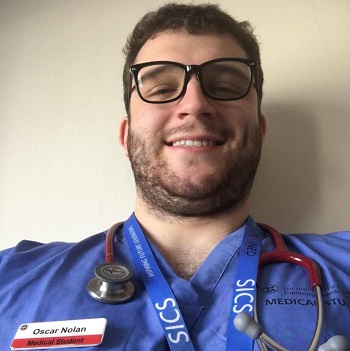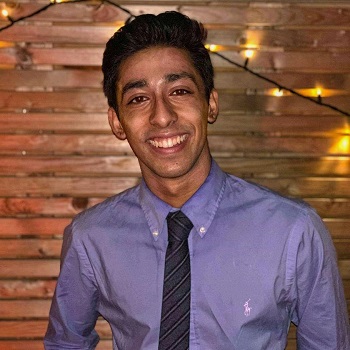Making the switch from high school life to uni life can be a daunting challenge, so we chatted to a few of our medical student ambassadors for an insight into how they successfully adapted to life as a medic.
What did you find the hardest thing about the change from high school to uni life? How did you adapt to the change?

Oscar on keeping on top of work
The hardest thing is definitely the work, you’ll underestimate it at the start (everyone will tell you that). I would say enjoy your freshers at the start but don’t let the work get ahead of you! I didn’t do so well in my first semester and I resolved that in my second semester so just try and work hard when you can.
Sorna on staying in touch with school friends
Being really close to my friends from school, I was quite worried at the idea of losing touch with them as we all went off to uni and we scattered further apart. It took a couple months of us all adjusting to our new schedules and making new friends etc, but we soon realised that if we wanted to see each other, we definitely had time to video call or hop on trains to meet up when we could. Once you build up your routine and get a sense for when your friends are free, staying in touch is definitely much easier than I thought it would be!
Baran on juggling lots of new tasks
There was just so much more to think about! While in high school it’s mainly just your schoolwork and helping your parents out around the house, at University it’s a huge step up! You’re learning to do everything by yourself without anyone else to rely on – groceries, cooking, washing, cleaning, laundry, emptying the hoover,taking the bins out – and this on top of your social life being more active than ever with so many new people and new opportunities around you. And, of course, the reason you’re there in the first place – your University work! I definitely found myself having a whole new appreciation for my parents ability to juggle everything upon my return home at Christmas.
It’s all a little overwhelming at first, but you get the hang of it pretty fast and you can always call home for help. I think in my first week I started panicking and called my mum asking how I was supposed to cook rice – and I’ve known how to do that since I was 12!

Mohshin on new ways of studying
It’s two weeks till your exam. You wake up bright and early to find yourself a seat in the library. You open up your laptop and load the recording of the first introductory lecture of your course – the only lecture you’ve actually attended. Your friend tags you in a post so you think: “I better reply”. You then realise your water bottle isn’t fully filled, and the percentage of volume filled directly correlates with how productive you are. After browsing through a myriad of Spotify playlists, you realise none of these really capture your esoteric music sense; you decide to make your own. Its 7pm… no point starting now.
Every student will have days like these. Despite having sat years’ worth of exams, with many more on the horizon, at no point has anyone really taught me how to study. Some people highlight, some people make notes and others use flash cards, but we all just kind of have to find one way and stick with it. During high school, my approach was very much open up the textbook and just learn everything. And while that worked for me then, university is a different game.
A lot of us have perfectionist attitudes when we’re studying for exams. With a subject like medicine, however, the volume of information can, at times, be overwhelming. You need to learn when to say stop.
You’re in first year, it’s the day before your exam and you’ve spent the last 2 weeks making playlists and learning every aspect of the heart. You’ve gone through every word of every single cardio lecture and know that the diameter of the left circumflex artery varies between 3.4 +/- 0.5 and 4.2 +/- 0.6 mm. First question in the exam: What’s asthma? Falling into the trap of memorising every fact is a very easy thing to do. Make a study plan. Doesn’t need to be anything fancy. Just map out roughly how many days you should give each topic. Focus on the things that are high yield and therefore more likely to come up. Knowing when to say “stop, I’m moving on” is an art. It’s a skill you will hone throughout your time at uni and throughout the rest of your career. Study smart, not hard.


